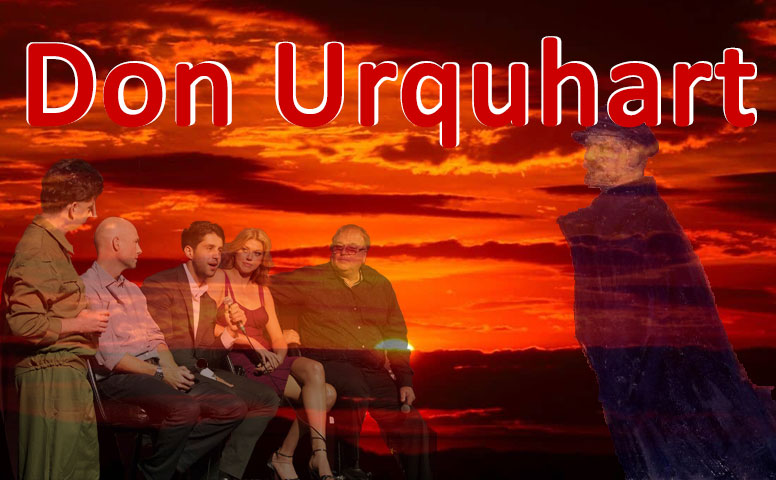26 May 2022
Diary of a Corbynista
A Madeleine moment
by Don Urquhart

In Proust’s Remembrance of Things Past a Madeleine was a delicate cake he could dip in his tea to evoke precious memories. On Any Questions there was a Madeleine in a less than delicate mood. She spoke for many:
How should I reduce my electricity use? Should I stop charging the hoist to get my partner in and out of bed? Should I stop her showering daily? Should I stop boiling kettles to sterilise bottles and tubes for her medication? Should I turn off her hospital bed to stop bedsores or should I stop charging her wheelchair? I owe £900 to the electricity company; I owe £800 to the gas company. I spend £277 a month on electricity, £290 on gas. That is before we enter into the increases. I don’t open anything that comes from electricity or gas because I know there’s nothing I can do. I think we’re at a poll tax moment.
So what is the Government doing to help Madeleine? And why, when so many people are suffering from a mismanaged economy, is the opposition’s line of attack limited to squawking interminably about windfall tax? Through constant repetition on the airways, the electorate now has this as the only way of bringing relief to the poorest. It isn’t. It is a way of getting a one-off slug of revenue into Treasury coffers and there is no guarantee that any of it will end up in Madeleine’s hands.
Some people fear that insufficient food/fuel/decent accommodation might lead to burglaries and shoplifting to provide life’s necessities. This would demonstrate a lack of confidence in the suitability of our unwritten constitution for looking after us all. Some also say that the French Government capped fuel costs because their people are not slow to don their gilets jaunes and man the barricades. At any event the government persists at its peril in its inadequate response to the emergency. With a flaccid democratic opposition which does not go into bat for them the people could hit the streets as the French did in 1789 and the Russians in 1917.
Or even the residents of Tottenham in 2011. We would do well to remember things past of this kind.
A less drastic way of resolving the issue of poverty is a regular tax on the wealthy. It is not an original thought and progressive taxation has been with us for many years. But not enough is being redistributed to protect our poorest and most vulnerable. A popular defence offered by Tory MPs seems to involve a figure of £22 billion. They all have the same story. A friend who worked in Parliament told me that the party leaderships try to predict the questions of the electorate and post to the inbox of their MPs the answers they are to use. It must save a lot of time. I am sure this £22 billion is one of these standard replies. But as so often when an amount of money is described as the answer to a problem I am reminded of Dame Louise Casey’s observation that it comes in little pots of complicated money. So the MPs’ inboxes will also tell them to mention Warm Homes Discount, Council Tax Rebate, National Living Wage, Universal Taper Rate, National Insurance Threshold, and Fuel Duty.
The Government should take more money from those who can afford it and give it to the needy. Forget windfall taxes. This needs something systematic and durable.
It is time to revive the notion of a progressive Property Tax which redistributes millions from those with much property to those with little or nothing.
This is a quite respectable economic concept that goes under the name Georgism after Henry George, an American 19th Century thinker who proposed fairly modest taxes on land and property. Objectors to his ideas pointed out the unfairness to landowners. One critic took a different view:
Capitalism’s last ditch. The whole thing is … simply an attempt, decked out with socialism, to save capitalist domination and indeed to establish it afresh on an even wider basis than its present one.
That was Karl Marx.
Any attempt to implement a Georgist tax in the United Kingdom in the 21st Century would run into a brick wall of objections. The ethical reservations can be easily disposed of. We all believe in progressive taxation. The highest rate of income tax peaked in the Second World War at 99.25%. It was then slightly reduced and was around 90% through the 1950s and 60s. And we already have a mechanism for collecting property taxes on a progressive basis. It is called Council Tax. Surely this can be tuned to collect a lot more from people owning many houses or tracts of land. Nevertheless, all sorts of practical hurdles will be pointed out or invented. I shall sit back and await the Exocets of the respectable Bourgeoisie seeing their assets under threat.
I could not survive without a pied à terre.
I will have to put rents up.
I am protecting the environment on my vast estates.
My property portfolio is my pension plan.
This will decimate house prices.
Etc.
The objections will have a similar ring to the protestations of government ministers that a windfall tax on energy companies will affect the poorest as the dividends go to pension funds. They could be more specific and admit that corporate dividends affect only institutional pension plans. I don’t think anyone has asked Madeleine about her institutional pensions.
And I hope that this is more a Council Tax Moment than the Poll Tax Moment Madeleine warns of.


